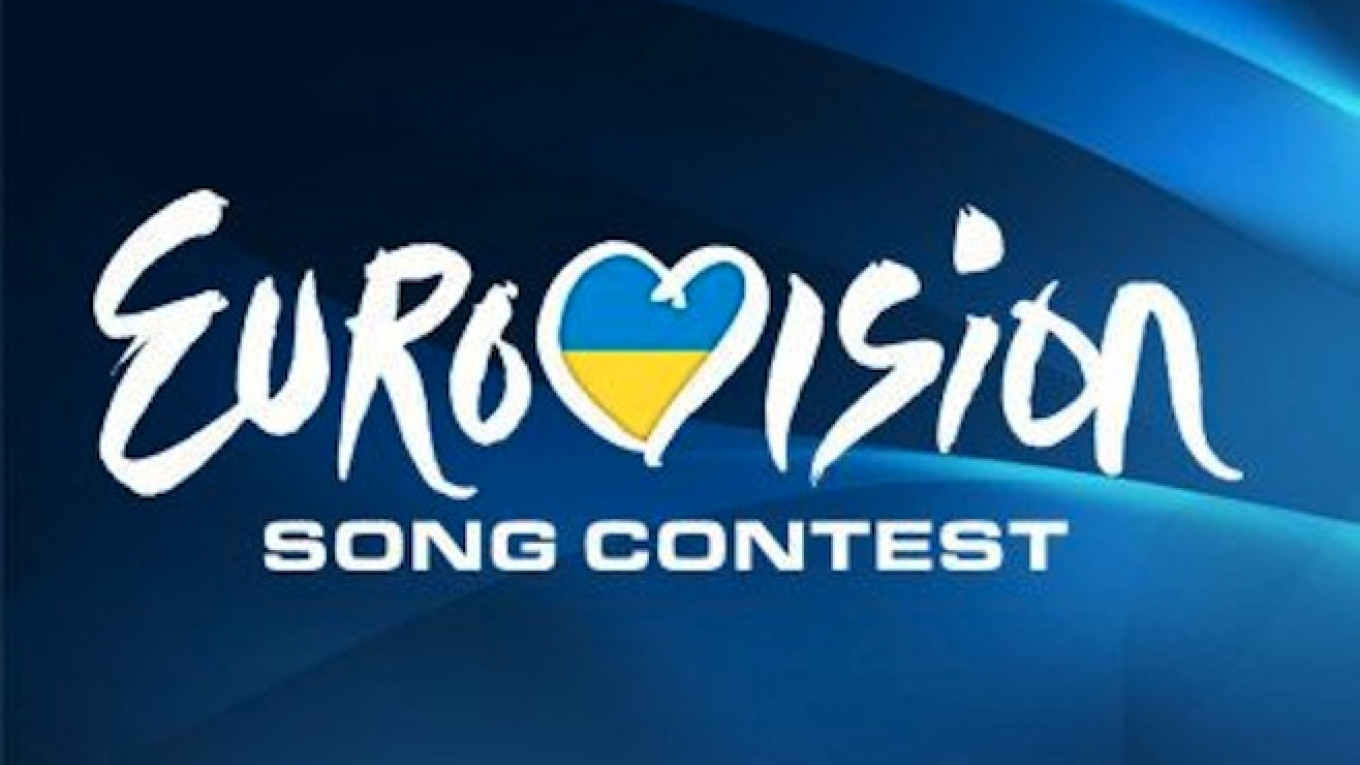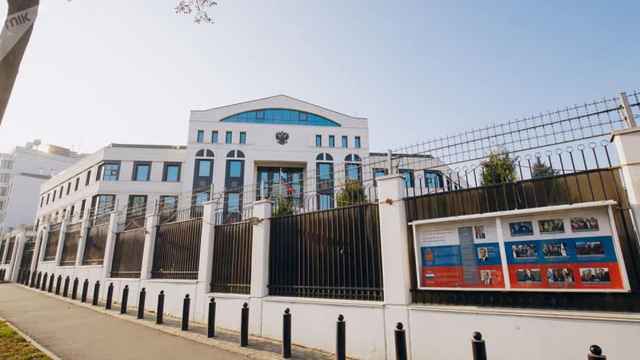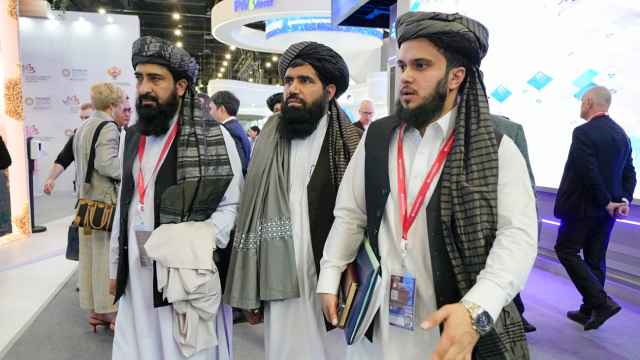Russian politicians have never before expressed so much indignation about the result of the Eurovision song contest- or at least they haven’t since 2014, which ended in victory of Austria's bearded Conchita Wurst.
Amid Moscow's tensions with Ukraine and the West, the triumph of the Ukrainian singer Jamala and her song on Stalin's deportation of the Tatars was immediately dubbed “political” in Russia.
Just hours after it was announced that Eurovision 2017 would be held in Ukraine, Russian officials began to suggest talented and charismatic candidates for next year's musical contest, in a bid to finally bring the trophy home.
At The Moscow Times, we chose the most remarkable suggestions:
Sergei Shnurov
Amongst the first names voiced among Russian politicians was the outspoken frontman of rock band Leningrad. Sergei Shnurov, Deputy Prime Minister Dmitry Rogozin personally suggested the rockstar, who is famous for his extravagant music videos and obscene language.
“He will not win, but he will tell them all where to go,” Rogozin wrote on Twitter the day after the 2016 final.
His plan was supported by State Duma Deputy Oleg Nilov, who also expressed his outrage with the “politicized” results.
“We should think twice before sending a representative there [to Eurovision]. But if we do, it should be an artist like Leningrad, who will have a few weighty words on what's going on there,” Nilov told the RIA news agency Tuesday.
The idea to send Shnurov to the song contest is nothing new, with one petition asking him to perform at last year's Eurovision gathering 9,000 signatures on Change.org.
Shnurov himself does not appear too enthused by the idea. It's come to this, he wrote on Instagram. Out of 140 million people, he said, top officials think I'm the one who should go and tell them all where to go.
Iosif Kobzon
Communist Party deputy Valery Rashkin believes that Russia should be represented by iconic singer and longtime parliament member Iosif Kobzon- a man, he says, who really can “convey the Russian national spirit.”
The Ukrainian-born Kobzon enthusiastically agreed to perform at the competition but is likely to face problems at the border. The singer is one of a number of artists banned from entering Ukraine over his support for Moscow's actions in Crimea and East Ukraine.
Kobzon has already announced that he is ready to perform at the competition in Ukrainian if the sanctions are lifted. Rashkin is taking a more hardline approach, and says Russia should boycott the next Eurovision if Ukrainian authorities do not let Kobzon into the country.
The Russian Black Sea Fleet Song and Dance Ensemble
Crimea's information and communications chief Dmitry Polonsky suggested Russia's Black Sea Fleet Song and Dance Ensemble as potential candidates on Thursday, the Lenta.ru news website reported.
The performance should also feature “tanks, artillery and aircraft,” he said. “After all, it is a show!”
Polonsky is not the only one considering a military style approach to Eurovision in Ukraine.
Conservative St. Petersburg City Duma Deputy Vitaly Milonov reached out with an offer to send the Russian Armed Forces' Alexandrov Ensemble of Song and Dance to the 2017 contest.
“Such an act from our country would be an unequivocal message about this contest, its political component and its venue,” Milonov told RIA Novosti Monday.
Head of the ensemble Gennady Sachenyuk also confirmed to the TASS news agency that the group was ready to represent Russia if they received such an offer.
Contact the author at a.bazenkova@imedia.ru. Follow the author on Twitter at @a_bazenkova.
A Message from The Moscow Times:
Dear readers,
We are facing unprecedented challenges. Russia's Prosecutor General's Office has designated The Moscow Times as an "undesirable" organization, criminalizing our work and putting our staff at risk of prosecution. This follows our earlier unjust labeling as a "foreign agent."
These actions are direct attempts to silence independent journalism in Russia. The authorities claim our work "discredits the decisions of the Russian leadership." We see things differently: we strive to provide accurate, unbiased reporting on Russia.
We, the journalists of The Moscow Times, refuse to be silenced. But to continue our work, we need your help.
Your support, no matter how small, makes a world of difference. If you can, please support us monthly starting from just $2. It's quick to set up, and every contribution makes a significant impact.
By supporting The Moscow Times, you're defending open, independent journalism in the face of repression. Thank you for standing with us.
Remind me later.






